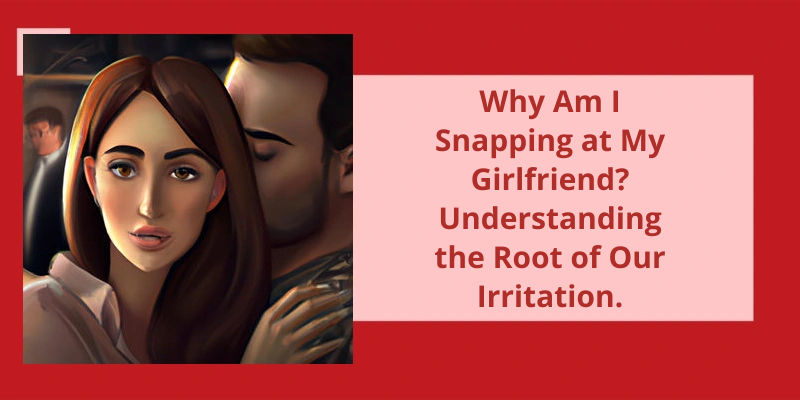One of life's little surprises is when we get an unexpected visitor, especially when it's a friend who pops in without giving any prior notice. It's a unique occurrence that can spark different reactions from people depending on their personality. While some may find it thrilling and exciting, others may feel overwhelmed and stressed. No matter what our initial feelings are, having an unannounced friend turn up can be a rewarding and unforgettable experience. It's an opportunity to catch up, reminisce on old times, and even create new memories. However, it can also be a challenging situation where we may need to shuffle our schedules around, clean up our homes, and put on a good face. Nonetheless, with an open mind and a willing heart, we can ensure that our unexpected friend's visit is a pleasant and memorable one.
Is It Okay for Someone to Show Up Unannounced?
Unannounced visits can be pretty intrusive and can make someone feel uncomfortable, especially if they’ve been caught off guard. Imagine having a day off that you wanted to spend in bed, but a friend shows up unexpected and you feel obliged to entertain them. It can be stressful and inconvenient, and it can cause tension in a relationship.
Showing up unannounced also shows lack of consideration for other peoples schedules and priorities. It’s important to recognize that everyone has a busy life, and they might be preoccupied with other things, like work or family commitments. By dropping in unexpectedly, you might be disrupting their flow and causing unnecessary stress.
Of course, there are certain circumstances where showing up unannounced is acceptable, for example, in an emergency. If someone needs your help or assistance, you should be there for them, regardless of whether youve been invited or not. However, this should be the exception and not the norm.
Technology has made it easy to communicate with people, and it’s become customary to make plans in advance. A simple text message or phone call can go a long way in making sure that your visit is welcome and doesn’t disrupt someones plans. It also shows that you respect their time and are thoughtful enough to give them a heads up.
It’s important to consider other peoples schedules and priorities, and make sure that your visit is welcomed. Communication is key, and a little bit of notice can go a long way in preserving relationships and preventing unnecessary stress. The next time youre thinking about dropping by uninvited, take a moment to consider how it might impact the other person and do the right thing.
There’s a long-standing debate about the acceptability of showing up unannounced at someone’s doorstep. While some may appreciate the spontaneity of unexpected visitors, others may feel, well, quite put out. In this article, we’ll explore why dropping in on someone unannounced is often considered rude and what steps you can take to avoid committing a faux pas.
Is It OK to Show Up at Someones House Unannounced?
The question of whether it’s okay to show up at someones house unannounced has been a topic of debate for quite some time. While some people believe that popping up at a friend or family members home uninvited is perfectly fine, others find it to be an invasion of their privacy. It’s generally agreed upon that showing up unannounced should be avoided unless it’s an emergency.
By calling ahead, you’re demonstrating thoughtfulness and consideration towards the other persons time and space. It gives them the opportunity to prepare for your arrival or let you know if now isn’t a good time for a visit. This is especially true if you plan on staying for an extended period of time, as it allows the other person to make arrangements accordingly.
By checking in first, you can be sure that the other person is available and in the right mood for visitors, making for a more enjoyable and stress-free experience.
It’s generally considered rude to show up at someones house unannounced unless it’s an emergency. It’s always best to call ahead and ask if a visit would be welcome, as this shows thoughtfulness and consideration for the other persons time and space. Unexpected visits can be disruptive and put undue pressure on the other person, so it’s important to always be respectful of their boundaries. By following these guidelines, you can ensure a more positive experience for both you and the other person.
The Cultural Differences in Opinions About Unannounced Visits
People from different cultures have different opinions about unannounced visits. In some cultures, it’s considered impolite to drop in on someone unannounced, while in others, it’s considered a norm. These differences are generally shaped by the values and norms that are prevalent in a particular culture. Therefore, it’s important to be aware of these differences and more importantly, to respect them, to avoid any misunderstanding or offense.
How Do You Tell Someone Not to Come Over Unannounced?
We’ve so much on our plate at the moment and won’t be able to make room for guests at this time.”. If youre not comfortable being upfront, try making other plans during the time theyre likely to drop in. You could say, “Oh, Ill be out running errands all day, so won’t be home to visit” or even “I’ve an early morning appointment tomorrow so won’t be able to chat tonight.”
It’s important to set boundaries with friends and family, even if it’s uncomfortable for you. When someone shows up unannounced, it can feel like an intrusion on your personal space and time. If this is a regular occurrence or a pattern, it can be helpful to sit down with the person and have a conversation about it. Explain that you value your privacy and need time to recharge. Be clear about what you need from them going forward, such as giving notice before dropping by or scheduling visits in advance.
If the person is someone youre not close with, such as a neighbor or acquaintance, you can always be polite but firm in your response. You could say, “It’s nice to see you but I didnt have plans to visit today. Could we schedule another time?”. If they continue to be pushy or insist on coming in, it’s okay to say no and shut the door. Remember that youre in control of your personal space and boundaries.
It’s also important to evaluate why you might feel uncomfortable setting boundaries with others. Are you worried about hurting their feelings or upsetting them? Are you afraid of conflict or rejection? Recognizing these underlying fears can help you address them and feel more confident in setting boundaries. Remember that setting boundaries isn’t a negative or selfish act – it’s a way to protect your mental and emotional health.
Overall, communicating clearly and assertively is key to telling someone not to come over unannounced. It can be uncomfortable in the moment, but it’s important to prioritize your own needs and well-being. Remember that you’ve the right to control who comes into your home and when. With practice and self-awareness, setting boundaries can become a natural part of your relationships with others.
How to Handle Unexpected Visitors During Busy or Stressful Times
It can be overwhelming to have unexpected visitors show up during stressful or busy times. One way to handle this is to politely explain that you’re dealing with a lot at the moment and ask if they could come back later. Alternatively, you can offer them a specific time that works better for you to visit. It’s important to be honest and communicate your needs while also being respectful of their time and intentions.
Source: AITA for telling my friend not to show up unannounced?
Conclusion
In conclusion, unexpected situations, such as a friend showing up unannounced, can be challenging but also an opportunity for growth and connection. Approaching the encounter with empathy, clear communication, and flexibility can lead to a positive outcome. It’s essential to remember that unexpected visits may be a result of a heartfelt desire to connect, and should be viewed with an open mind and warm heart. Ultimately, navigating unexpected events in a constructive and responsive manner can enrich our relationships and create meaningful bonds that last a lifetime.






